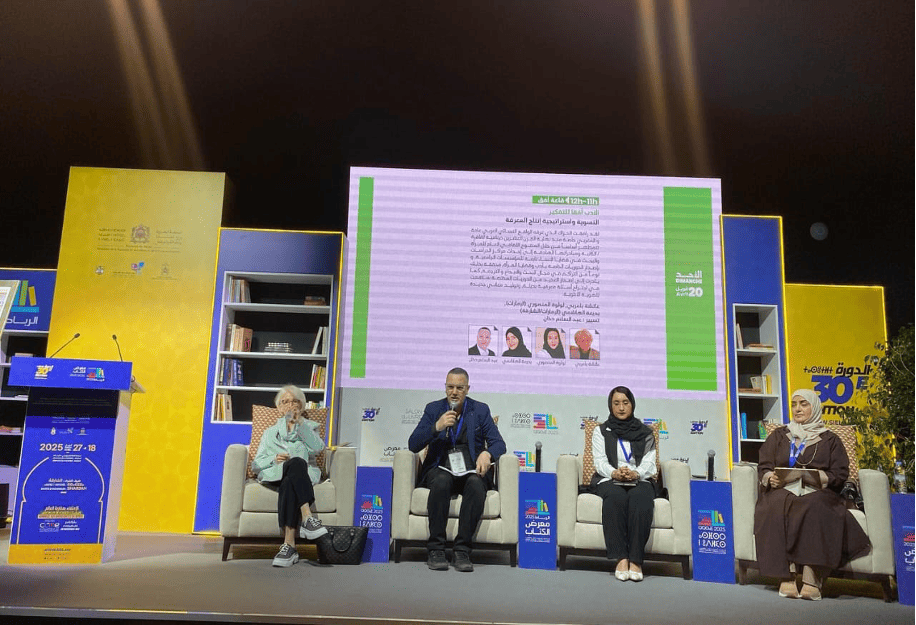


A key highlight of the 30th In Rabat International Book and Publishing Fair (SIEL) was a panel dedicated to examining feminism through an Arab lens. Titled “Feminism and the Strategic Production of Knowledge,” the session featured distinguished speakers from Morocco and the United Arab Emirates. The discussion opened a space for critical reflection on how feminist thought emerges from within Arab societies, emphasizing its cultural depth, historical significance, and transformative role in challenging patriarchal norms and generating new forms of knowledge.
The discussion was opened by Aïcha Belarbi, a Moroccan writer and Sociologist, that started her talk by dropping a central question: How can feminism produce new knowledge? She emphasized that feminism is not a product of Western civilization but rather is shaped by cultural expressions within women’s lived experiences.
From the UAE, acclaimed novelist Lulwah Al Mansouri addressed the complexities of defining feminism in a modern context. “Despite technological progress, we still need to rename feminism, we need a name that embraces the achievements and creativity of women as mothers, writers, and leaders.”
Lulwah noted: “There remains a shadow of fear in woman’s writing, a fear of creativity and visibility,” she added. “If we overcome that fear, we will shine. Telling stories of motherhood and femininity is brilliance in itself.”
Writer and researcher Badiya Al Hashemi said that the Emirati woman has always played a vital role since the country's founding. Hashemi stated that the institutional efforts such as the UAE's General Women’s Union, that have played an important role in shaping gender policies and amplifying women's voices through platforms like the “Ashri’a” newsletter and the Emirates Women Writers Association.
Moderated by Abdeslam Dkhan, the session not only celebrated the legacy of Arab feminists but also called for a renewed feminist narrative, one that intertwines academic research, literature, policy-making, and cultural heritage.
This cross-cultural panel between Moroccan and Emirati intellectuals proved that feminism in the Arab world is both resilient and evolving, rooted in tradition yet always forward-looking.
